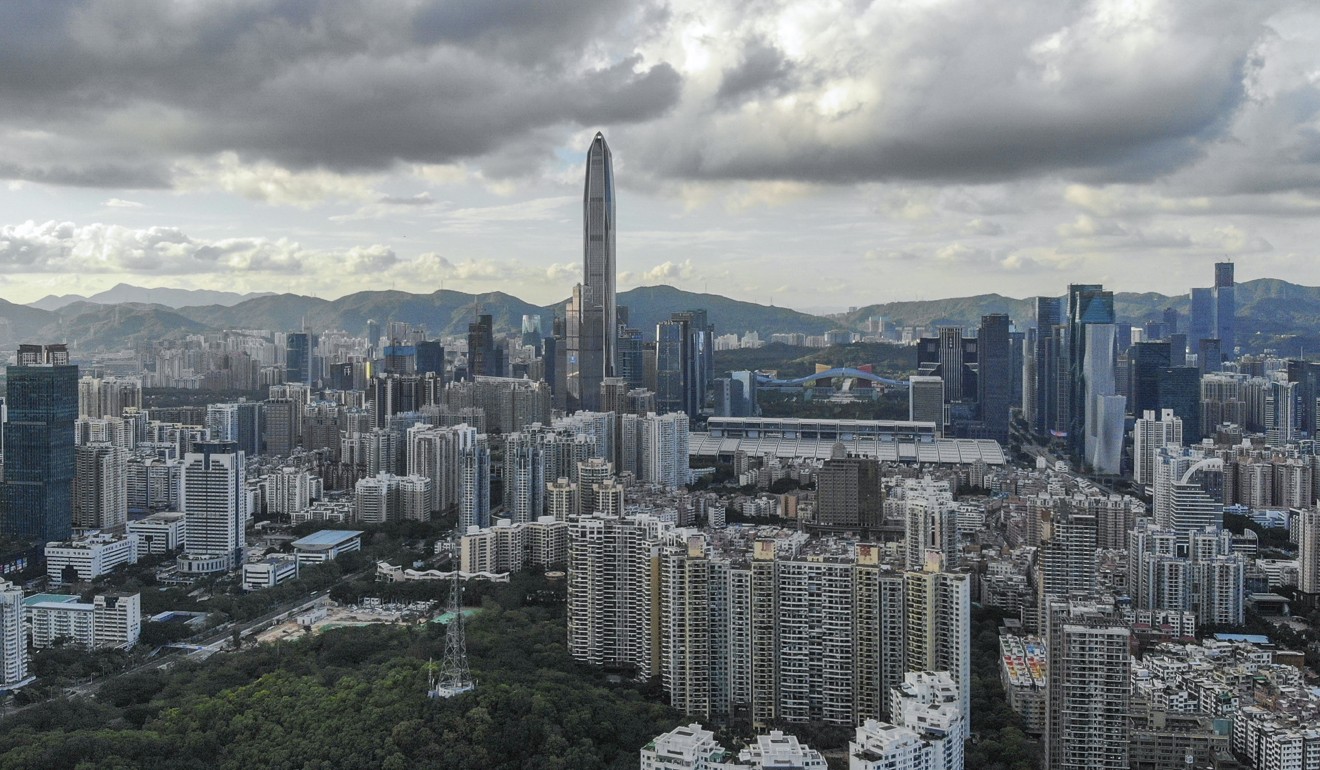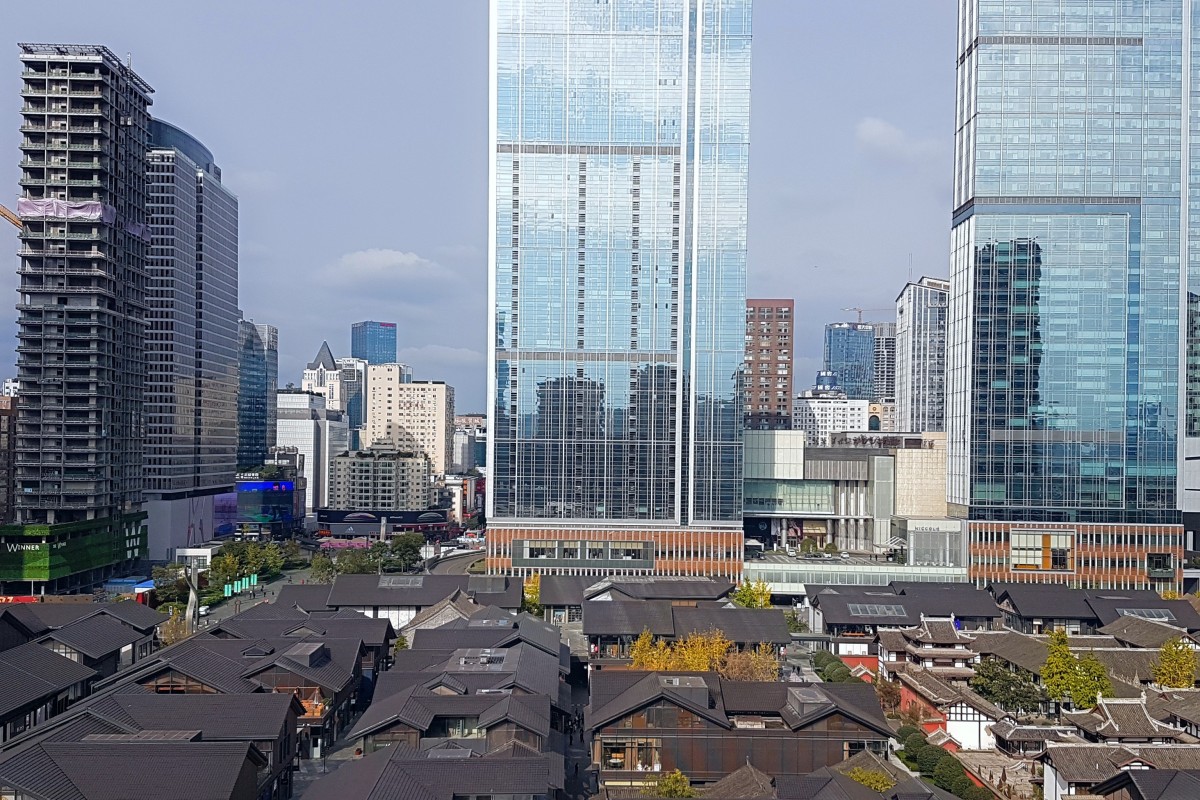The Hong Kong Bay Area is known globally as the Silicon Valley of hardware. You show up there with 20,000 dollars and a basic whiff of an idea, and in no time you will have a prototype. You can choose to mass produce after that right there. Whether or not you can push the finished product into the market would be up to you. That is quite a bargain. That is innovation at bullet-train speed.
We have all been talking about how China is thick in the brain, how it simply does not get it. Ends up maybe not. They have started their political reforms the exact same way they started their economic reforms. Deng Xiaoping picked one place across the waters from Hong Kong. And once economic reforms were shown to work there they were then taken all over China.
Looks like Xi has picked that same spot for his political reforms.
China’s Shenzhen is using big data to become a smart ‘socialist model city’ Beijing tells southern technology centre to use ‘best modern governance practices that promote high quality and sustainable development’ ......... China will be the ‘world’s first modern powerhouse not built on the road of capitalism’, head of national economic planning agency says ....... Shenzhen is experimenting with a “party and technology” development model as it aims to become a “socialist model city”...... The city, which is known for its technology industry, was told by Beijing in August to find “the best modern governance practices that promote high quality and sustainable development so it can be held up as an example of civilised society of law and order where people enjoy a high degree of satisfaction”. ........
I think the Chinese have this attitude that, well, everyone in China is free to join the party. And once they join the party it is a meritocratic process. You can rise up the ranks based on your ability and work ethic. So it is a very democratic process. They also take great pride in having bureaucracies that actually work. They try to teach African countries the best practices from their own bureaucracies.
To that I say, that is all fine and dandy. Why not go one step further? Let the party offer two candidates for president every five years. And let ordinary Chinese pick one through a secret ballot. Let there be a universal franchise. Maybe that is where this Shenzen experiment will end up.
Shenzhen, Beijing lose out to Chengdu as China’s best performing city economy, says report Chengdu has for the third time scooped top spot among Chinese cities for economic performance........ As the provincial capital of Sichuan province, Chengdu – along with Chongqing – is one of the twin growth engines in China’s western region, having cemented its place as a manufacturing hub specialising in defence-related production....... “The city’s geographic location inside the Diamond Economic Zone makes it an important gateway for the southwest region. Investments in a 10,000km Chengdu-Europe Express Rail will help improve China’s logistical connection with the western world supporting the [Belt and Road] Initiative,” the report said........ Shenzhen, home to China’s version of Silicon Valley where technology giants Huawei and Tencent are based, dropped from first to second place............. President Xi Jinping’s endorsement of Shenzhen as a “key pilot zone for socialism” will allow the city to carry out bolder reforms and may mean it snaps up some of crisis-hit Hong Kong’s financial services.
Shenzhen turning its back on Hong Kong property model in favor of affordable public housing
We have all been talking about how China is thick in the brain, how it simply does not get it. Ends up maybe not. They have started their political reforms the exact same way they started their economic reforms. Deng Xiaoping picked one place across the waters from Hong Kong. And once economic reforms were shown to work there they were then taken all over China.
Looks like Xi has picked that same spot for his political reforms.
China’s Shenzhen is using big data to become a smart ‘socialist model city’ Beijing tells southern technology centre to use ‘best modern governance practices that promote high quality and sustainable development’ ......... China will be the ‘world’s first modern powerhouse not built on the road of capitalism’, head of national economic planning agency says ....... Shenzhen is experimenting with a “party and technology” development model as it aims to become a “socialist model city”...... The city, which is known for its technology industry, was told by Beijing in August to find “the best modern governance practices that promote high quality and sustainable development so it can be held up as an example of civilised society of law and order where people enjoy a high degree of satisfaction”. ........
Shenzhen faced “unprecedented new tasks” which bore great significance for the rest of the country.
.......... The problems encountered in the modernisation of our country are likely to appear in Shenzhen first ...... it was Shenzhen’s pioneering role that had made such a pilot experiment important........ “Being a socialist pilot demonstration zone, the governance models that have proven successful in Shenzhen will be replicated in other Chinese cities” ....... the city began its big data and smart city plan in 2013....... As well as data sets covering populations and the economy, the official said Shenzhen had also built “thematic databases” that could empower officials who handled social disputes and public grievances......... As part of the city’s plan, Shenzhen also launched its “Weaving Net Project” in 2013 under which it divided the city into thousands of data zones and designated an “information collector” to each zone. ........ The system also uses 2 million surveillance cameras dotted about the city. ....... “About 80 per cent of criminal cases are solved with the help of video surveillance.Almost all criminal cases can be solved in 24 or 48 hours with the help of these technologies”
....... the city had taken a much bolder data strategy than Hong Kong in using big data to enhance governance........ “The biggest difference between Hong Kong and Shenzhen is the mindset,” he said. “We are constantly looking for more efficient and advanced ways to run and govern the city, while Hong Kong believes in its ‘small government, non-interventionist’ approach.”......... Shenzhen could benefit from smart governance as it had a large population but only a small number of civil servants.......... the government’s data platforms had accumulated more than 22.1 billion pieces of data about20 million people, 3.6 million companies and 14 million properties........ there were only about 40,000 civil servants in Shenzhen, of which about 25,000 were police officers
..... in 2013, Shenzhen was able to carry out predictive analysis of the public demand for education and health care services........ “The process of simplifying government approvals was a trigger for the government to carry out the restructuring reformI think the Chinese have this attitude that, well, everyone in China is free to join the party. And once they join the party it is a meritocratic process. You can rise up the ranks based on your ability and work ethic. So it is a very democratic process. They also take great pride in having bureaucracies that actually work. They try to teach African countries the best practices from their own bureaucracies.
To that I say, that is all fine and dandy. Why not go one step further? Let the party offer two candidates for president every five years. And let ordinary Chinese pick one through a secret ballot. Let there be a universal franchise. Maybe that is where this Shenzen experiment will end up.
Shenzhen, Beijing lose out to Chengdu as China’s best performing city economy, says report Chengdu has for the third time scooped top spot among Chinese cities for economic performance........ As the provincial capital of Sichuan province, Chengdu – along with Chongqing – is one of the twin growth engines in China’s western region, having cemented its place as a manufacturing hub specialising in defence-related production....... “The city’s geographic location inside the Diamond Economic Zone makes it an important gateway for the southwest region. Investments in a 10,000km Chengdu-Europe Express Rail will help improve China’s logistical connection with the western world supporting the [Belt and Road] Initiative,” the report said........ Shenzhen, home to China’s version of Silicon Valley where technology giants Huawei and Tencent are based, dropped from first to second place............. President Xi Jinping’s endorsement of Shenzhen as a “key pilot zone for socialism” will allow the city to carry out bolder reforms and may mean it snaps up some of crisis-hit Hong Kong’s financial services.
Shenzhen turning its back on Hong Kong property model in favor of affordable public housing


No comments:
Post a Comment